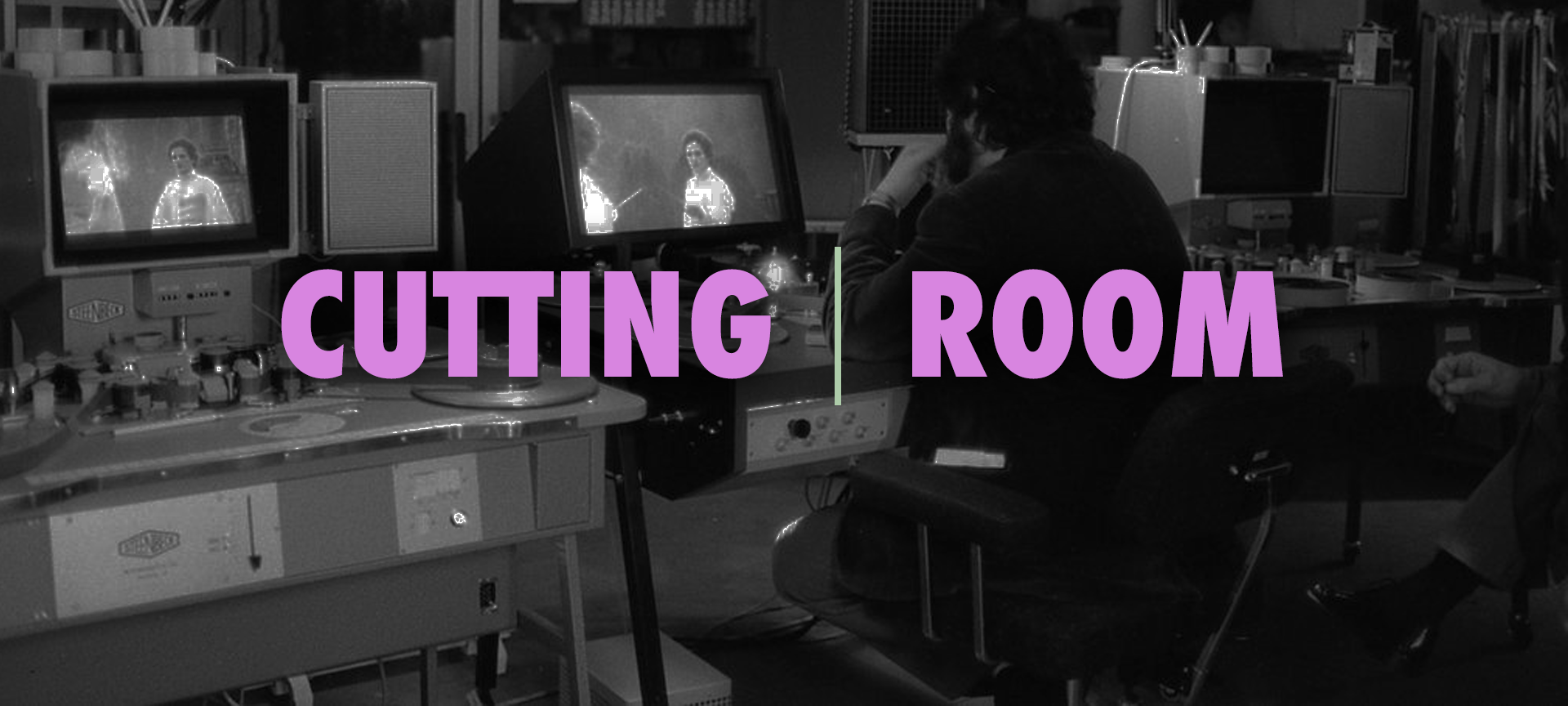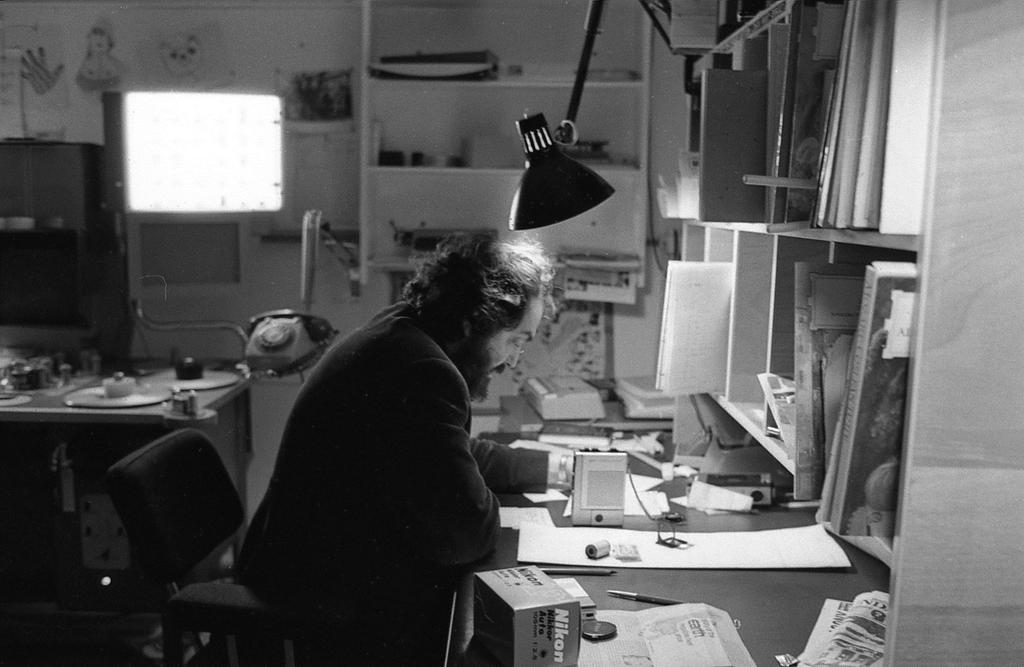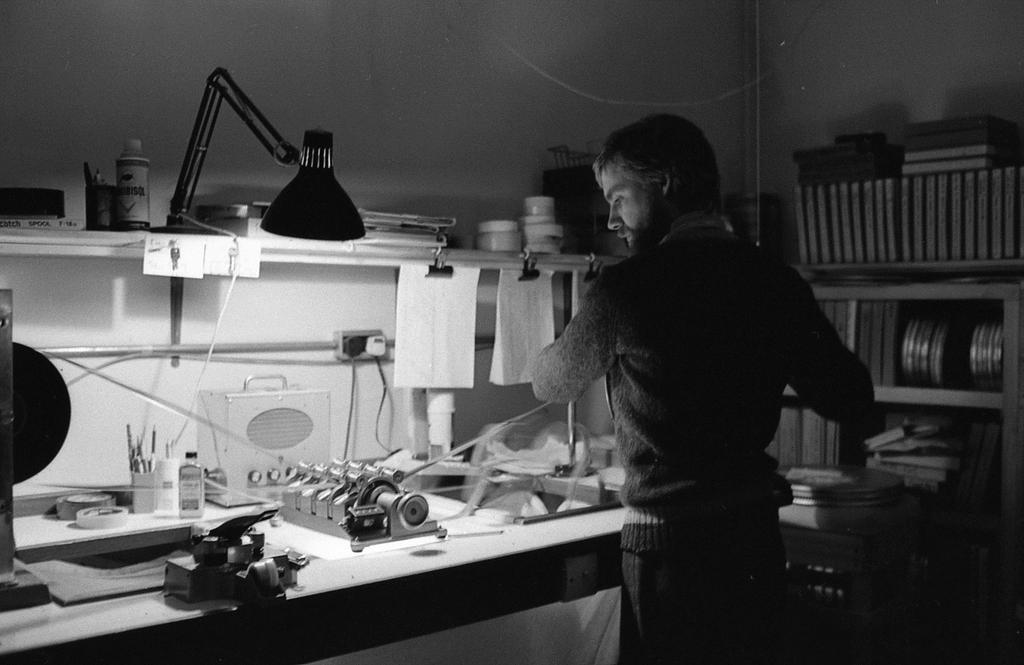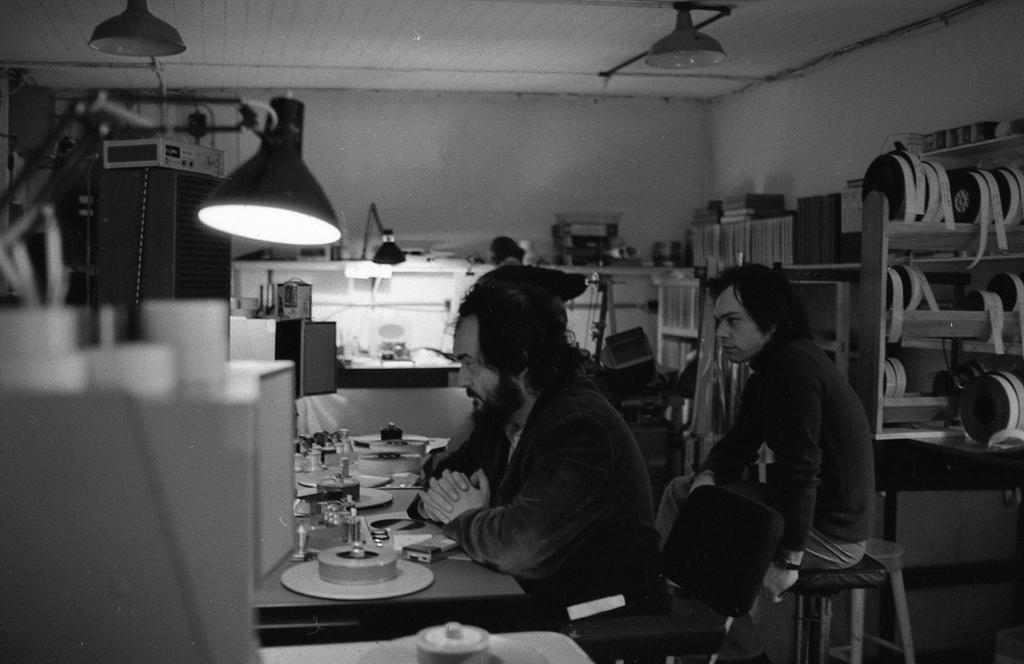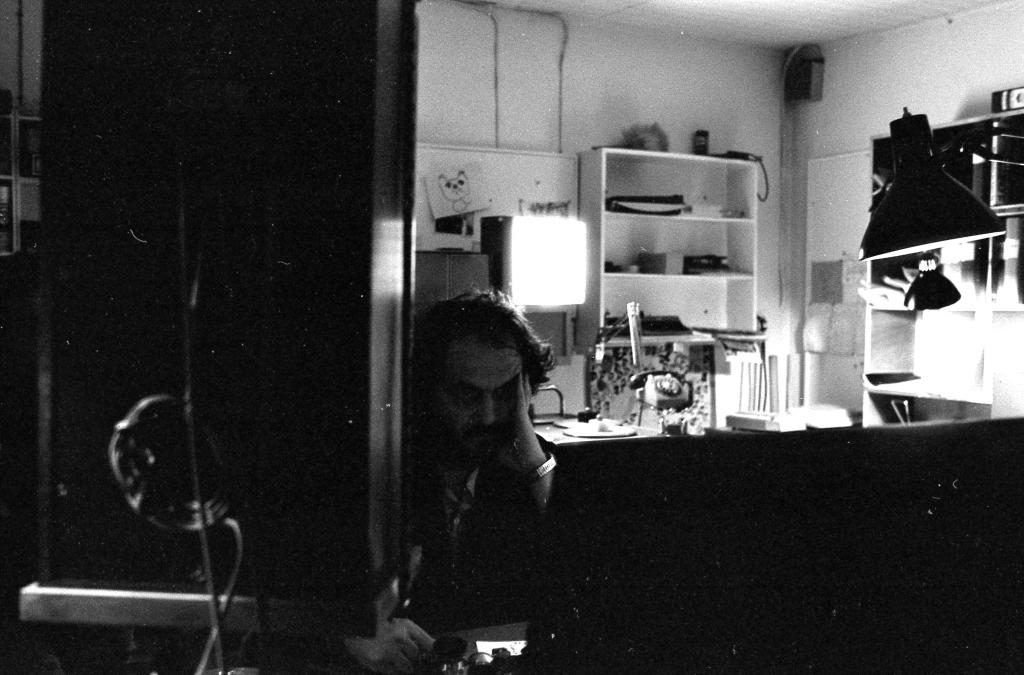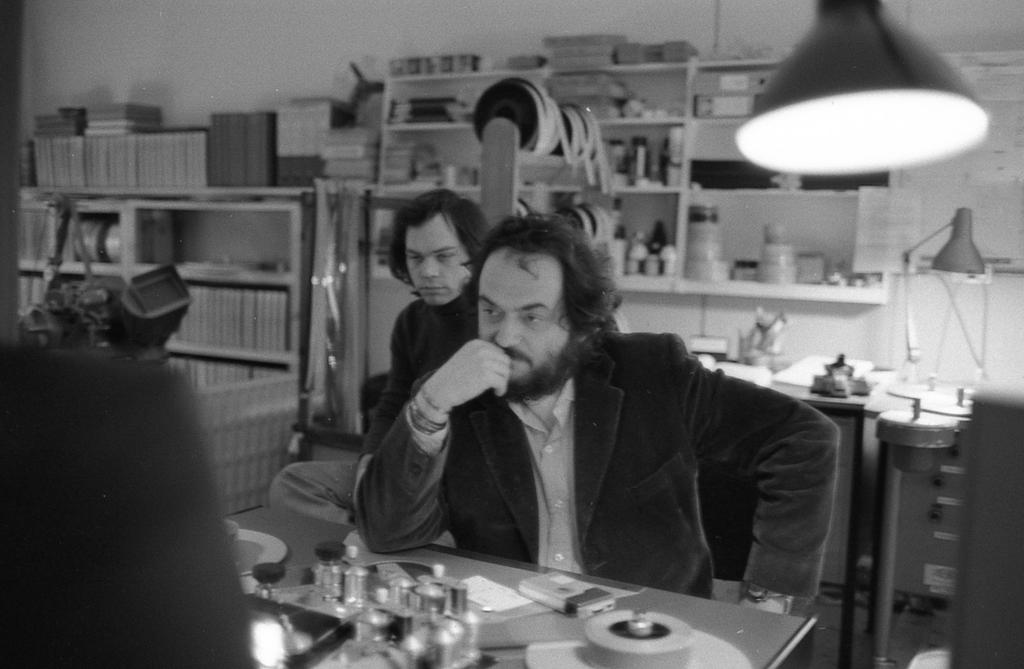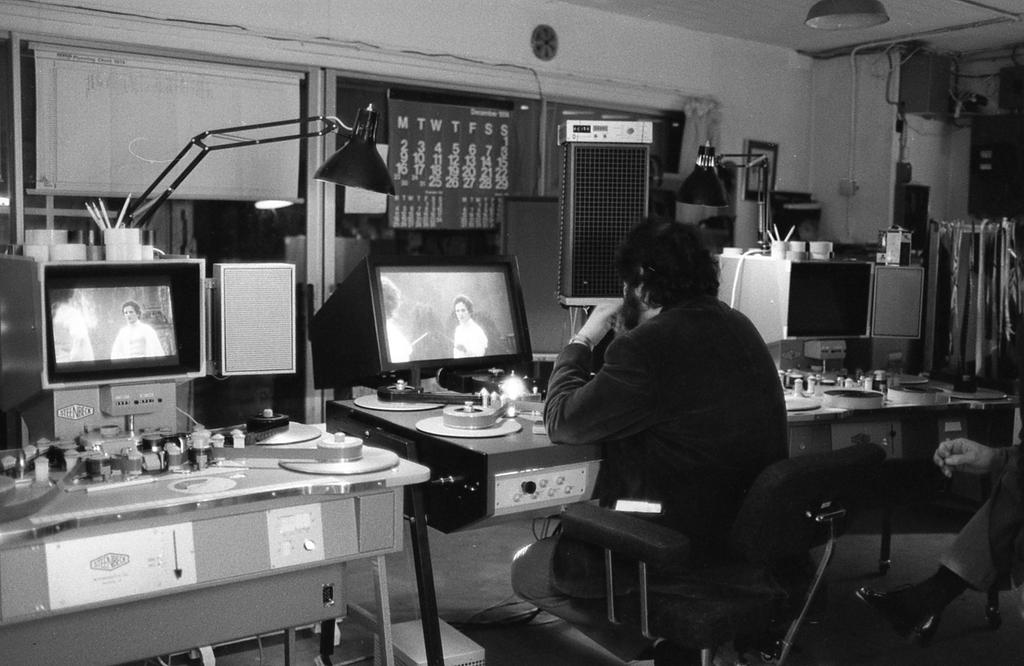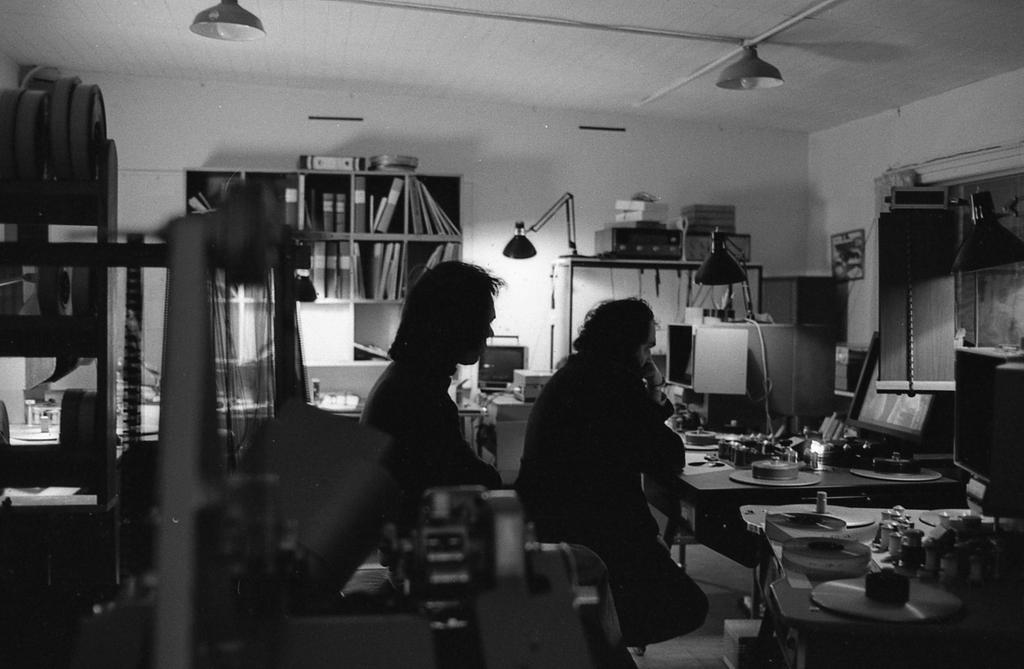"It does take a few runnings to decide finally how long things should be, especially scenes which do not have narrative advancement as their guideline."
-Kubrick.
The following is a detailed list of every cut/frame I removed from Eyes Wide Shut with corresponding GIF, timecode, explanation and correlation to the source material 'Dream Story': the book the film was based on.
Scroll down, use the links listed below or the image map replication of the film timeline, edited parts in dark green.
CUT.01A | 00:00:48:11
What: Establishing shot outside of Bill & Alice’s Apartment, "New York City".
Duration: 00:00:05:08
Why: There 14 still establishing shots of NYC and 14 moving establishing shots of NYC throughout the film. I cut 7 of the still ones and 3 moving ones or 10 out a total 28. From what I observe, the still establishing shots serve very little narrative or emotional purpose other than to orient the audience to where exactly we are in New York City (although there are only a few actual shots of New York City as the film was shot in London- for an in-depth look at this go here).
Since, if you'll notice, the city sounds of these still shots usually comes in very harsh in contrast to the predominantly quiet film, (especially with no movement or central character to follow) I decided to use these shots sparingly as “wake up calls” or as ways to signal a certain shift in Dr. Bill’s internal journey.
For example, I cut almost all of the still establishing shots before the masquerade scene. I felt that Dr. Harford’s growing jealousy and sexual tension was interrupted by these motionless establishing shots and in some cases there were actually two shots that served as wide masters.
After the masquerade, as Dr. Harford's rude awakening begins, he begins a guilt driven investigation for restitution. I felt the still establishing shots were better utilized in this final part of the film to help give the feeling that reality was setting in for Dr. Harford.
CUT.01B | 00:00:53:19
Source: This entire sequence 01B-01D is not in the book and was invented for the film. Instead the book begins with Fridolin (Bill) & Albertina's (Alice's) daughter (Helena) reading from a “1001 Nights” before bed (a scene placed later in the film). Their governess (Rosa the maid) takes her to bed and our couple begins a discussion by briefly recalling the events of the party from the night before which we see Bill & Alice getting ready for here.
What: Bill & Alice get ready for night out at extremely decedent holiday party.
Duration: 00:01:00:13
Why: Despite the fact that I LOVE this opening series of steady-cam shots (CUT.01B-CUT.01E) and though they serve a certain narrative purpose in that it shows the banality of Bill & Alice’s marriage (She asks “how do i look” he responds without even looking at her) I cut this scene and the following ones in lieu of what i felt was ultimately a stronger way to introduce their marital disconnect: Alice drinking alone a party, gets hit on by a man smitten with her and while they dance together she sees her husband flirting with two adorning models. To me, this alternate way of meeting our protagonists, not only shows us just how precarious their fidelity is but also quickly establishes their place among the wealthiest elite of NYC with more visual panache (the steady cam/tracking shot around Kidman is my favorite in the film).
It's also worth mentioning that none of this, the opening scenes at the apartment or even the party, in fact, is in the original novella. The book starts with our couple (Fridolin & Albertin aka Bill & Alice) putting their daughter to bed and then having their conversation about their flirtations from the party the night before.
CUT.01C | 00:01:54:08
Source: This shot and its entire sequence 01B-01D was invented for the film.
What: Bill & Alice kiss their daughter, Helena, goodnight and give instructions to their babysitter, Roz.
Duration: 00:00:46:04
Why: As with Cut.01B this scene was cut in lieu of the alternate opening. This seemingly perfunctory scene serves to establish the Harford family and in addition, further accentuate Bill’s emotional disconnect when he doesn't remember their babysitters name (Roz) and furthermore when Roz, in stark contrast to Bill, emphatically compliments Alice’s appearance.
It can also be argued that Helena’s desire to watch the Nutcracker possibly serves two deeper purposes, first as a subtle parallel to the Nutcracker itself, a famous ballet incorporating the dream world as reality (in depth read here) and second to subtly establish the hierarchy of elites controlling the masses through media and entertainment (later Helena asks to buy a fictitious toy called magic circle; see in depth read here). Both purposes, though reflecting Kubrick’s usual innate and often incidental grasp of semiotics, are a bit of a stretch and in the end did not warrant enough reason for me to keep the shot.
CUT.01D | 00:02:40:12
What: Establishing shot outside of Victor Ziegler’s apartment
Duration: 00:00:05:01
Why: Another still establishing shot. 2nd out of 7.
CUT.01E | 00:02:45:13
Source: This scene is not in the book though the party is discussed in recall. The hosts, Victor Ziegler & his wife, are invented for the film. In fact, co-writer Frederic Raphael, recalls the character of Ziegler to be the first thing he & Kubrick decided on together. Though it is worth mentioning Kubrick did not intend to bring Ziegler back later in the film but was later convinced by Raphael.
What: Bill & Alice arrive at Victor & Illona Ziegler’s party. They exchange kisses and Christmas pleasantries. He compliments Alice’s appearance and thanks Bill for introducing him to his surgeon.
Duration: 00:00:41:05
Why: This scene serves to introduce Victor not only as a patient of Dr. Bill but also as a seemingly happy married man to Illona. His emphatic compliment to Alice comes across as innocent but when he asks Illona whether he compliments women often she insists on playfully disagreeing. Overall this scene is there to set up Victor but, in light of Bill’s journey, it just seems perfunctory and inconsequential; especially after cutting Victor Ziegler’s final scene.
CUT.02 | 00:03:32:14
Source: This sequence is not in the book. However Fridolin & Albertina attended a ball “sat like two lovers, among the other couples, in the buffet, eating oysters and drinking champagne. They chatted gaily, as though they had just made each other's acquaintance, acting a comedy of courting, bashful resistance, seduction and surrender.”
Nachtigall (Nick Nightingale) is introduced later in the book when Fridolin (Bill) randomly arrives at the cafe where he is playing piano.
What: Bill & Alice dance but he seems distracted. Bill recognizes the piano player as Nick Nightingale, his old friend who dropped out of medical school. Bill leaves Alice in order to catch up with Nick, who mentions he is playing a gig downtown at the Sonata Club. Alice, feeling dismissed, downs a glass of champaign.
Duration: 00:02:52:17
Why: This sequence further establishes Bill & Alice’s marital problems and introduces Nick, setting up Bill’s later encounter with him. Cutting Nick’s intro does lead to the one conflict in story point that doesn’t make entire sense when Bill finally arrives at Sonata Cafe later in the story, Nick mentions “you made it!” However, it could be that Nick had invited Bill at some other point in time before our story takes place. It works because Bill recognizes Nick’s photo outside the cafe before entering. Overall I didn’t feel like this intro of Nick outweighed the impact of starting with the intro of Alice drinking champaign by herself.
CUT.03 | 00:07:20:18
Source: “Instead, however, another woman unexpectedly took his arm. It was his wife. She had just freed herself from the company of a stranger whose blase manner and apparently Polish accent had at first charmed her. Suddenly he had offended her--frightened her by a rather common and impertinent remark." - Dream Story
What: Continuation of Alice and Sandor Szavost’s flirtation. Sandor introduces himself ask Alice if she is familiar with the poet Ovid and the “The Art of Love.” Alice retorts, “Didn’t he wind up all by himself, crying his eyes out, in some place with a very bad climate.” Sandor quips, “ But he also had a good time first, a very good time.”
Duration: 00:01:13:16
Why: Though this part of the scene is a nice foreshadowing for Bill’s odyssey it had the feeling of not going anywhere. By jump cutting to them dancing it shows their flirtation progressing and the conversation becomes much more interesting as they get closer to kissing. Its worth mentioning that in order for this jump cut to work I horizontally flipped the first dancing shot in order to keep Sandor and Alice on their corresponding side of the frame, otherwise the jump was too jarring. Only way to notice the flipping of the frame is that Alice’s wedding ring appears to be on her right hand, which actually could be construed to say something quite poignant about Alice’s marriage in a very Room 237 kind of way. The flip was unnecessary after the cut-away to Bill flirting with the models.
CUT.04 | 00:17:02:05
Source: This scene is the first Kubrick & Raphael wrote for the script. It does not appear in the book.
What: Bill admonishes Mandy to take responsibility after overdose.
Duration: 00:00:21:20
Why: Bill repeatedly harps on Mandy about rehab and stopping drug use and it began to feel very pedantic. This is a pattern throughout the writing in Eyes Wide Shut: sometimes it was just felt repetitive. To which, you could argue that was the point to help the dream like state of the film but sometimes enough is enough. My official counter argument: did this brief exchange pop out as missing when you watched it?
CUT.05 | 00:43:53:21
“The bell outside rang again, and feeling he was released, he hastily kissed Marianne's hand, as if in gratitude, and went to open the door. Doctor Roediger stood there, in a darkgray top-coat, an umbrella in his hand and a serious face, appropriate to the occasion. The two men greeted each other much more cordially than was called for by their actual state of acquaintance. Then they stepped into the room. After an embarrassed look at the deceased, Roediger expressed his sympathy to Marianne, while Fridolin went into the adjoining room to write out the official death-certicificate…” - Dream Story
What: Rosa, the maid, opens the door for Carl, takes his coat and we follow Carl to the bedroom door.
Duration: 00:00:23:14
Why: This is basically a mirror of Bill’s entrance earlier at the beginning of this sequence. I do like the fact that Kubick casted someone who looks a lot like Cruise here and mirroring their entrance really drives that home but I felt that cutting this walk up created more tension inside the room with Marion and Bill having just kissed and makes Carl’s attempt at comfort all the more uncomfortable.
CUT.06 | 00:45:26:00
“… and a few words, appropriate to the occasion, were exchanged, with the usual embarrassment in the presence of one who has just died. The little room suddenly seemed crowded with mourners. Fridolin felt superfluous, took his leave and was escorted to the door by Roediger who said a few words of gratitude and expressed the hope of seeing him soon again.”
What: Another still establishing shot.
Duration: 00:00:06:02
Why: I cut this particular shot of the city in order to jump straight to Bill walking in deep thought. I felt that Bill’s growing inner turmoil was better served by staying with his character leaving Marion’s apartment and thereby allowing the audience to stay in it with him. This is a good example of my earlier reference to establishing shots being a sort of an emotional “reset” or palette cleansing and here I thought it serves the audience to NOT have a break from Bill’s mental agony as he goes further down the rabbit hole. This is the 3rd of 7 still establishing shots that were cut.
CUT.07 | 00:46:06:07
“ Then he saw, still quite far away, a small group of fraternity students, six or eight in number, turning a corner and coming towards him. When the light of a street lamp fell upon them he thought he recognized them, with their blue caps, as members of the Alemannia, for although he had never belonged to a fraternity, he had fought a few sabre duels in his time… The students were quite near now; they were laughing and talking loudly. Perhaps one or two of them were from the hospital? But it was impossible to see their faces plainly because of the dim light, and he had to stay quite close to the houses so as not to collide with them. Now they had passed. Only the one in the rear, a tall fellow with open overcoat and a bandage over his left eye, seemed to lag behind, and deliberately bumped into him with his raised elbow. It couldn't have been mere chance. What's got into that fellow? Fridolin thought, and involuntarily he stopped. The other took two more steps and turned. They looked at each other for a moment with only a short distance separating them. Suddenly Fridolin turned around again and went on. He heard a short laugh behind him and he longed to challenge the fellow, but he felt his heart beating strangely, just as it had on a previous occasion, twelve or fourteen years before.”
What: Bill is assaulted and harassed by a group of “Rowdy College Kids”
Duration: 00:00:55:06
Why: I believe the purpose of this scene is to further emasculate Bill, thereby deepening his feelings of inadequacy and subsequently propel his sexual escapade. Never once in my viewing of this film did I think that Bill needed this moment to aid him in his motivations. To me, the seeds of jealousy have begun to take root and need no help in blossoming into a series of escalating events. In fact I felt it sort of confused Bill’s motivation since his feelings of inadequacy from Alice’s desire for another man are never expressly stated by Bill and being assaulted by young men in my opinion lends more to desires of violence and not particularly sexual conquest. Also those scenes of Bill’s imagination of Alice with the Naval Officer are so expertly crafted I felt they were motivation enough. Though, don’t get me wrong, I love this scene and was hard to cut simply for it’s not-so-subtle tip of the hat to the droogs in A Clockwork Orange.
It’s also worth mentioning that this scene in the novella reveal so much about Bill’s inner turmoil that just does not translate as fully to film- this struggle is evident in the late decision to not include voice over narrative in the film which states: “Had he become a coward? He noticed his knees were shaking a little bit. Ridiculous! Why should he get involved in a street fight with some drunken college student who had five friends with him. He, a man of 35, a practicing physician,a married man & father of a child. He might wind up in the hospital or worse & be in the same position as the man he just left... Then he thought about his profession? There were dangers lurking there too, everywhere & at all times -except that one usually forgets about them."
Alt-edit of the frat boy scene in Eyes Wide Cut @38:30 (it’s the edit I considered changing the most). It works, but ultimately I felt there was too much happening in too short of a time period - hence why Kubrick paced it the way he did in the original and why I felt I had to cut it completely as opposed to just tightening it, however this is the best tightened version.
CUT.08 | 00:49:06:23
“An oil-lamp was burning in her room, and she turned it up. It was a fairly pleasant place and neatly kept. At any rate, it smelled fresher than Marianne's home, for instance. But then, of course, no old man had been lying ill there for months. The girl smiled, and without forwardness approached Fridolin who gently kept her at a distance. She pointed to a rocking-chair into which he was glad to drop. "You must be very tired," she remarked. He nodded. Undressing without haste, she continued: "Well, no wonder, with all the things a man like you has to do in the course of a day. We have an easier time of it." He noticed that her lips were not painted, as he had thought, but were a natural red, and he complimented her on that.
What: A continuation of Bill and Domino’s interaction in which they discuss possible services and agree on a price.
Duration: 00:01:51:09
Why: I did not think there was much to gain from this well acted, possibly improvisational discussion. Which stands as it’s inherent problem, it’s just a discussion. Money means nothing to Bill thereby eliminating any possible stakes in this moment. What does the price matter? In addition, discussion about whats going to happening is never quite as compelling as watching what happens. To me, this conversation only deflates the tension being built by anticipation of Bill’s sensual train wreck. Also I loved the idea of cutting from Domino saying, in reference to the dirty dishes in the kitchen, “Sorry about the mess, maid’s day off,” to Alice sitting alone in the kitchen eating snacks, smoking and watching tv waiting up for Bill to come home.
CUT.09 | 00:54:08:01
“She explained: "You never can tell, some time or other it's bound to get out. It's quite right of you to be afraid. If something should happen, you would curse me. She was so positive in refusing the banknotes which he offered her that he did not insist. She put a little blue woolen shawl about her shoulders, lit a candle to light him downstairs, went down with him and unlocked the door. "I'm not going out any more tonight," she said. He took her hand and involuntarily kissed it. She looked up to him astonished, almost frightened. Then she laughed, embarrassed and happy. "Just as if I were a young lady," she said. The door closed behind Fridolin and he quickly made a mental note of the street number, so as to be able to send the poor little thing some wine and cakes the following day.”
What: Bill ruminates over leaving and pays Domino in spite of their time being cut short.
Duration: 00:00:38:03
Why: I cut this parting exchange in favor of ending on Bill’s desire to stay. In response to her asking if he has to leave he says “I think I do…” and she replies, “Are you sure?…” Bill gives her a brief look of yearning. This specific moment, Bill’s desire unrequited left hanging in the air gives us the feeling that though Bill’s efforts have been thwarted here, the desire looms.
CUT.10 | 01:01:22:17
“He ran down the street and reached the corner-house he was looking for a few minutes later. He rang the bell, inquired from the care-taker whether the costumer Gibiser lived in the house, and hoped in the bottom of his heart that he would receive a negative answer. But Gibiser actually lived there, on the floor below that of the costume shop. The care-taker did not seem especially surprised at having such a late caller.”
What: Establishing shot of taxi cab pulling up outside of Rainbow fashions.
Duration: 00:00:16:10
Why: The first of 3 moving establishing shots cut. This one in particular was odd in that there are two establishing shots before this scene. This crane shot of the taxi cab arriving, revealing Rainbow Fashions storefront and then a steady cam shot of Bill paying the cab driver, walking up some stairs to a call box revealing Rainbow Fashion’s storefront again in a closer wide shot. I chose the latter because cutting directly to Bill paying the cab driver keeps the momentum moving by immediately connecting us with him and it also reveals the Rainbow Fashions storefront. Two birds with one stone.
CUT.11 | 01:03:02:01
“The care-taker did not seem especially surprised at having such a late caller. Made affable by Fridolin's liberal tip, he stated that it was not unusual during the carnival for people to come at such a late hour to hire costumes. He lighted the way from below with a candle until Fridolin had rung the bell on the second floor. Herr Gibiser himself opened the door for him, as if he had been waiting there. He was a bald-headed, haggard man and wore an old-fashioned, flowered dressing-gown and a tasselled, Turkish cap which made him look like a foolish old man on the stage. Fridolin asked for a costume and said that the price did not matter, whereupon Herr Gibiser remarked, almost disdainfully: "I ask a fair price, no more.” He led the way up a winding staircase into the store.”
What: Bill confirms if Milich is the new owner and shows him his doctors identification.
Duration: 00:00:30:05
Why: Milich sums up exactly how I feel about this part when he shrugs and says, “Ok so you are Dr. Harford!” Things brings up a larger point about Dr. Bill’s repeated ID flashing; Bill uses the ID four times throughout the film. This is the first. The remaining three occur during Bill’s “investigation” of Nick and Mandy’s disappearances (at the cafe next to Sonata, then at Nick’s hotel and finally at the Hospital to see Mandy’s body). Here, I chose to cut instead to Milich dismissing Harford causing him to state his purpose, revealing his desperation and essentially turning this scene into a minor obstacle to what Bill is ultimately in pursuit of. As far as Bill’s ID flashing revealing Bill’s inflated sense of importance or as some have argued, the ID is just another “mask” Bill wears tend to fall flat with me and in this example, dragged the scene down.
CUT.12 | 01:04:14:03
“There was an odor of silk, velvet, perfume, dust and withered flowers, and a glitter of silver and red out of the indistinct darkness. A number of little electric bulbs suddenly shone between the open cabinets of a long, narrow passage, the end of which was enveloped in darkness. There were all kinds of costumes hanging to the right and to the left. On one side knights, squires, peasants, hunters, scholars, Orientals and clowns; on the other, ladies-at-court, baronesses, peasant women, lady's maids, queens of the night. The corresponding head-dresses were on “a shelf above the costumes. Fridolin felt as though he were walking through a gallery of hanged people who were on the point of asking each other to dance. Herr Gibiser followed him. Finally he asked: "Is there anything special you want?… "I need a dark cassock and a black mask, that's all." At this moment the clink of glasses rang out from the end of the passage. Fridolin was startled and looked at the costumer, as though he felt an explanation were due. Gibiser, however, merely groped for a switch which was concealed somewhere. A blinding light was diffused over the entire passage down to the end where a little table, covered with plates, glasses and bottles, could be seen. Two men, dressed in the red robes of vehmic judges, sprang up from two chairs beside the table and a graceful little girl disappeared at the same moment. Gibiser rushed forward with long strides, reached across the table and grabbed a white wig in his hand. Simultaneously a young and charming girl, still almost a child, wearing a Pierrette costume, wriggled out from under the table and ran along the passage to Fridolin who caught her in his arms. Gibiser dropped the white wig and grabbed the two vehmic judges by their robes. At the same time he called out to Fridolin: "Hold on to that girl for me." The child pressed against Fridolin as though sure of protection. Her little oval face was covered with powder and several beauty spots, and a fragrance of roses and powder arose from her delicate breasts. There was a smile of impish desire in her eyes. "Gentlemen," cried Gibiser, "you will stay here while I call the police." "What's got into you?" they exclaimed, and continued as if with one voice: "We were invited by the young lady." Gibiser released his hold and Fridolin heard him saying: "You will have to explain this. Couldn't you see that the girl was deranged? Then turning to Fridolin, he said: "Sorry to keep you waiting." "Oh, it doesn't matter," said Fridolin. He would have liked to stay, or, better still, to take the girl with him, no matter where —and whatever the consequences. She looked up at him with alluring and child-like eyes, as if spellbound. The men at the end of the passage were arguing excitedly. Gibiser turned to Fridolin and asked in a matter-of-fact way: "You wanted a cassock, a pilgrim's hat and a mask?" "No," said Pierrette with gleaming eyes, "you must give this gentleman a cloak lined with ermine and a doublet of red silk." "Don't you budge from my side," answered Gibiser. Then he pointed to a dark frock hanging between a medieval soldier and a Venetian Senator, and said: "That's about your size and here's the hat. Take it quick." The two strange men protested again: "You'll have to let us out at once, Herr Chibisier." Fridolin noticed with surprise the French pronunciation of the name Gibiser. "That's out of the question," replied the costumer scornfully. "You'll kindly wait here until I return." Meanwhile Fridolin slipped into the cassock and tied the white cords. Gibiser, who was standing on a narrow ladder, handed him the black, broad-rimmed pilgrim's hat, and he put it on. But he did all this unwillingly, being more and more convinced that danger was threatening Pierrette and that it was his duty to remain and help her. The mask which Gibiser gave him and which he at once tried on, smelt strange and rather disagreeable…Fridolin, however, refused to move. "Swear that you won't hurt that poor child," he said. "What business is it of yours?" "I heard you, a minute ago, say that the girl was insane—and just now you called her a depraved creature. That sounds pretty contradictory." "Well," replied Gibiser theatrically, "aren't insanity and depravity the same in the eyes of God?" Fridolin shuddered with disgust.
What: Milich takes Bill through his costume shop where they find his daughter cavorting with two older men.
Duration: 00:04:23:20
Why: This scene reminds me most of what Kubrick himself cut out of 2001: a space odyssey, “an entire sequence of several shots in which Dave Bowman searches for the replacement antenna part in storage." Or in this case “an entire sequence where a quirky shop owner helps Bill find a costume.” Albeit I am certain this scene is more interesting than the one in 2001, overall it creates such a narrative drag that it begins to become difficult to follow Bill’s character in a way. I lose track of the fact that he is driven by a jealous imaging of his wife with another man. In fact even the cut-aways to Alice having sex stop losing impact because they start to come across as an overcompensating reminders of what this film is really about. I will say for the record that I normally find this scene charming, egnimatic and disturbing all at once, which, in a sense, fits perfectly into the film as a whole but for this exercise I couldn’t help but see it as superfluous at best. There is however a strong argument that this scene serves as a window into lower echelons of the sex trade that films exposes at various levels of affluency - that in a sense all the daughters of this dilm are being groomed for men’s pleasure. Horrifying.
CUT.13 | 01:41:09:10
“He had drawn up a program for the day with great care, indeed, even a bit pedantically. First of all he had to see a young attorney in the neighborhood who was seriously ill. Fridolin made a careful examination and found his condition somewhat improved. He expressed his satisfaction with sincere joy and ordered an old prescription to be refilled. ”
What: Still establishing shot.
Duration: 00:00:05:02
Why: Bill is on a roll here as impromptu investigator and this establishing shot feels like a restart as opposed to a continuation.
CUT.14 | 01:42:26:02
“He took a cab and arrived there a quarter of an hour later. It was a very shabby place, smelling of unaired beds, rancid lard and chicory. A tough looking concierge, with sly, inflamed eyes, wishing to keep on good terms with the police, willingly gave information. Herr Nachtigall had arrived in a cab at five o'clock in the morning, accompanied by two men who had disguised their faces, perhaps intentionally so, with scarfs which they wore wrapped about their heads and necks…”
What: The Desk Clerk (Alan Cummings) suspects Bill is a cop, Bill shows him his doctor ID.
Duration: 00:00:34:17
Why: Once Bill asks a probing question about Nick Nightingale, the desk clerk gets suspiscious that Bill might be a cop. To me, this moment always came across as a bit facetious in a way since its clear tha,t the desk clerk enjoys divulging information. However, cutting this moment led to one continuity error: The Desk Clerk waves goodbye at the end of the scene saying "anytime Bill." Cutting this ID flashing means that The Desk Clerk would've never learned Bill's name. I personally OK with this because it gave me the briefest of chills to think The Desk Clerk was 1) aware of who Bill was already and 2) anticipated him coming around. Incendentally, I feel this furthers the omnipresence of elite sercret society and ratchets the tension of us watching Bill's dive deeper into this mystery.
CUT.15 | 01:44:41:14
“…While Nachtigall was in his room, the two men had paid his bill for the last four weeks. When he didn't appear after half an hour, one of them had gone up to fetch him, whereupon they all three took a cab to North Station. Nachtigall had seemed highly excited, in fact—well, why not tell the whole truth to a man who gave one so much confidence—he had tried to slip a letter to the concierge, but the two men stopped that. Any letters for Herr Nachtigall—so the men had explained—would be called for by a person properly authorized to do so. Fridolin took his leave.”
What: After Bill leaves, the desk clerk reconsiders the candid conversation with consternation. Another still establishing shot of the city.
Duration: 00:00:09:02
Why: Leaving people hanging is definitely a pattern for Dr. Bill so I was tempted to keep this small part but I preferred to to keep the narrative focused on Bill’s investigation and therefore cut directly to his taxi cab pulling up outside of Rainbow Fashions. I shaved off a few frames early because of the slight camera movement towards the end of the shot matches perfectly with the slight move introducing the taxi cab. This all came together to create a sense of urgency in Bill as he moves through the city.
CUT.16 | 01:45:56:18
“At this moment the door which led to the inner rooms was opened, and a young man with an open top-coat over his evening clothes stepped out. Fridolin decided it could be none other than one of the vehmic judges of the night before. He undoubtedly came from Pierrette's room. He seemed taken aback when he caught sight of Fridolin, but he regained his composure at once. He waved his hand to Gibiser, lighted a cigarette with a match from the desk, and left the apartment. "Oh, that's how it is," remarked Fridolin with a contemptuous twitch of his mouth and a bitter taste on his tongue. "What did you say?" asked Gibiser with perfect equanimity. "So you have changed your mind about notifying the police," said Fridolin as his eyes wandered significantly from the entrance door to that of Pierrette.” “We have come to another agreement," remarked Gibiser coldly, and got up as though this were the end of an interview. He obligingly opened the door as Fridolin turned to go and said, without changing his expression: "If the doctor should want anything again ... it needn't necessarily be a monk's costume.”
What: Milich is finishing his transaction with Bill, when his daughter comes out in lingerie and Bill learns that Milich has come around from the night before and now appears to be supportive of his daughter soliciting herself for prostitution.
Duration: 00:01:34:16
Why: I like that this scene plays into the theme of the hyper over-sexualization of our children in our culture, as these are the women that wind up participating in the ritual Bill went to, however, it’s a major departure for a simple payoff that is neither groundbreaking or relevant to the trajectory of Bill's story.
CUT.17A | 01:55:23:03
“He felt rather touched when he thought of her, and remembering his plan of the night before, he turned into the nearest store and bought all kinds of delicacies. Walking along with his package, the consciousness of performing an act which was at least sensible, and perhaps actually laudable, made him feel glad. Nevertheless, he turned up his coat collar when he stepped into the hallway and went upstairs several steps at a time. The bell of the apartment rang with unwelcome shrillness and he felt relieved when a disreputable looking woman informed him that Fraulein Mizzi was not at home. But before the woman had an opportunity of taking charge of the package for Mizzi, another woman joined them. She was still young and not bad-looking, and had on a sort of bath-robe. "Whom are you looking for?" she said, "Fraulein Mizzi? Well, she won't be home again for some time." The older woman made a sign to her to keep quiet, but Fridolin, anxious to confirm what he had “already half guessed asked very simply: "She's in the hospital, isn't she?" "Well, as long as you know it anyhow. But there's nothing wrong with me, thank heaven," she exclaimed vivaciously and stepped quite close to Fridolin. Her lips were half open, and as she boldly drew up her voluptuous body the bath-robe parted. Fridolin declined and said: "I was passing by and I stopped to bring something for Mizzi." He suddenly felt very young, but asked in a matter-of-fact voice: "In which ward is she?" The younger woman mentioned the name of a professor in whose clinic Fridolin had been an assistant several years before, and added good-naturedly: "Just let me have those packages, I'll take them to her tomorrow. And I promise that I won't snitch any of it. I'll give her your regards too and tell her that you're still true to her." She stepped closer to him and laughed invitingly but when he drew back a little she gave it up at once and said, as if to console him: "The doctor said she'd be home in six or, at most, eight weeks." When Fridolin returned to the street he felt choked with tears.”
What: Bill revisits Domino hoping to complete their consummation, instead finds her roommate Sally and after trying to solicit her, she rebuffs and informs him that Domino tested positive for HIV and she has no idea if she is ever coming back.
Duration: 00:06:01:07
Why: The removal of this scene marks a major departure from the original version of the film. In the original version, Bill calls Marion (the woman whose father died in the beginning of the film) hoping for a late night hook-up only to have Carl answer the phone. Bill then takes a taxi to Domino’s where he meets Sally. Sally informs him that Domino has HIV and is now missing. Bill goes walking through the streets and finds that he is being followed. Now, with this scene with Sally cut, Bill makes the call to Marion and when Carl answers and Bill is visually troubled, he goes walking and finds he is being followed. To me, this edited version makes sense because when Bill visited Marion for the first time and she made a move a on him, Bill was so disturbed he went walking in the streets and thats where he met Domino for the first time. So what does Bill do again? He calls Marion for a visit and when Carl answers, he is so disturbed he goes walking the streets only the time instead of finding a gorgeous hooker, he finds that he is being followed. Now it could be argued that the scene with Sally is necessary because it provides Bill with a “near miss” scenario which helps him finally put his sexual urges to rest. However, counterpoint to that, I would say that nearly dying at the orgy is reason enough for Bill’s urges to subside and that the phone call with Marion going awry provides just enough shock to put Bill’s urges to rest, hence why Bill is in such clear turmoil.
Making this edit also proved to be technically difficult because of the music cues. With this scene gone it meant that we went straight to the wide shot of Bill walking alone in the city as one car passes through the frame (Cut 17B), then to to a close up of Bill walking where he realizes he is being followed. I cut the wide shot of Bill and moved it to a later point, so that leaves us Bill hanging up the phone going directly to the close up shot of him walking realizing he is being followed. The problem with this is that in the shot with him realizing he is being followed the piano piece, “Musica ricercata, II,” (by Dominic Harlan) is playing in the background. Since I do not have the stem sound files I had to improvise. What I did was find the exact point in the soundtrack file and matched it with the music in the scene, then i extended that file and worked it to fit over the phone call scene. If you watch the original version when Bill calls Marion and Carl answers there is no music over that scene. By doing this it allows the cut to feel organic to the innerlife of Bill and eliminates the harsh intro midway into that piano part.
CUT.17B | 02:01:24:10
“Was this another and final sign that everything was bound to turn out a failure for him? But why should it? The fact that he had escaped such a great danger might just as well be a good sign. Was it the all-important thing to escape danger? He could expect to face many others, as he was by no means ready to give up the search for the marvelous woman of the night before.”
What: Bill walks solo in the night. A single car passes.
Duration: 00:00:12:05
Why: I thought this shot spoke volumes about what Bill was going through. I loved it so much that instead of cutting it completely I moved it to a later point in the film after Bill visits Mandy’s body in the morgue. That moment in the Morgue, with the edits I made, becomes a very important moment of realization for Bill and this shot of him walking home solemnly afterwards fit perfectly as a transition to him coming home.
This move also presented some technical challenges because of the music tied to it did not match the new scene it follows. The piano piece in the morgue is “Grey Clouds” (also by Dominic Harlan) and when cutting to this shot, “Musica ricercata, II,” would come in abruptly. So, I looked back at the music cue in the original following the morgue shot and saw that Kubrick had “Grey Clouds” play for a little longer over Bill walking through the hospital (Cut 18A) but since that part was now gone, I needed a music cue to bridge all three newly arranged shots together: The morgue, the walking home on the street, and Bills arrival at home. In order to do this I had to completely delete the sound from the walk home and the arrival home so I could put new music over it, which meant that I had to find foley and SFX to replace the atmosphere in the city, the car driving through the frame, Bill unlocking and opening the door, closing the door, and footsteps walking up the hallyway. So I went back through the film with a fine tooth comb to pull all these sounds from other parts of the film and cobbled them together and adjusted them to sound like they were meant to be together akin to an audio Frankenstein. Then I took the end cue from “Musica ricercata, II,” and fit it right to the end of the music cue in the morgue from “Grey Clouds” and extended that cue all the way through to the lower notes of “Musica ricercata, II,” in the hallway right before Bill takes off his jacket. This one sound edit took almost 5 hours to complete and I consider it a darn near miracle that it works as well as it does.
CUT.18A | 02:09:53:01
This scene was invented for the film.
What: Bill leaves the morgue only to get a phone call from Ziegler who invites him over. He confronts Bill about attending the masked party and informs him the measures the hooker went to save him was all staged to scare Bill to keep him quiet. Bill asks if the hooker was in fact the woman in the morgue and Victor confirms that she was but that she was not murdered and simply died from an overdose which was inevitable given her prior drug overdose at Victor’s party.
Duration: 00:14:10:10
Why: By far the longest cut I made - it also happens to be the first. This was the cut that started it all. Its sole purpose is to (sort of) explain what happened throughout the whole film leaving us with the sinking feeling that the elite can and do get away with whatever they please. To be honest, I just don’t think the film needs this scene to create the presense of an all powerful secret society. I personally would rather have this whole thing be a bit mysterious than to have a glib, misleading explanation. Though on that level it does work to simultaneously explain what happened but also leave the sinking feeling that Mandy was in fact murdered.
CUT.18B | 02:24:03:11
“Then, when she had fully realized the utter futility of his adventures, he would confess to her that they had been real. Real? he asked himself—and at this moment he noticed something dark quite near Albertina's face. It had definite outlines like the shadowy features of a human face, and it was lying on his pillow. For a moment his heart stopped beating, but an instant later he saw what it was, and stretching out his hand, picked up the mask he had worn the night before. He must have lost it in the morning when making up his bundle, and the maid or Albertina herself had found it. “Undoubtedly Albertina, after making this find, suspected something—presumably, more and worse things than had actually happened. And she intimated this, by placing the mask on the pillow beside her, as though it signified his face, the face of her husband who had become an enigma to her. This playful, almost joking action seemed to express both a gentle warning and her readiness to forgive. Fridolin confidently hoped that, remembering her own dream, she would not be inclined to take his too seriously, no matter what might have happened. All at once, however, he reached the end of his strength. He dropped the mask, uttered a loud and painful sob—quite unexpectedly—sank down beside the bed, buried his head in the pillows, and wept.”
What: Transition shot between the Victor Ziegler pool scene and Bill coming home where we see the mask that Bill misplaced sitting on his pillow and Alice sleeping soundly next to it.
Duration: 00:00:13:04
Why: I believe that Kubrick used this early reveal of the mask to create dramatic irony for the audience. That we would see the mask and consider its placement and feel a since of dread as Bill meanders his way to bed. With it gone, now we don’t discover the mask until Bill does.
This cut is indicative of my entire approach to this film. Most of what I have cut has all been in service of Bill’s internal journey and Tom Cruise’s magnificent performance in this film. By that, I mean, it seems that Kubrick had constructed a thriller about a man who goes on a sexual odyssey and yet took every detour possible so as to not destroy that thriller but stretch it as far as he could, even to the point of near collapse (Kubrick was outspoken about his desire to change the form of film narrative). This deliberate pacing that Kubrick used was created not only by minutes of Bill walking through city streets and doorways but also by having him run into various characters on the way that nearly blind us of what his original motivation was and unfortunately, draw the attention away from Bill’s character and subsequently Cruise’s performance. Some will argue that this is precisely what gives Eyes Wide Shut its hypnotic appeal and I would agree on many levels. However, I created this version of the film as an experiment to test that exact hypothesis. Can we draw out the psychological thriller aspect of the film and still keep the hypnotic effect? How much can be cut and still retain what we love about this film?
